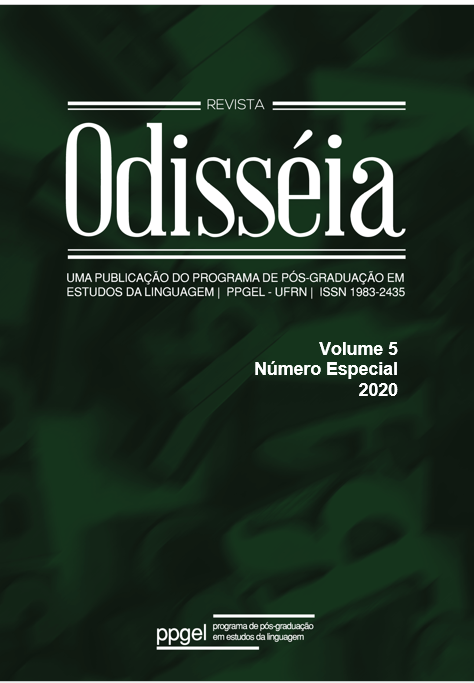O país que não existiu: tempo e narração em O Brasil é bom, de André Sant’Anna
DOI:
https://doi.org/10.21680/1983-2435.2020v5nEspecialID22442Palavras-chave:
Literatura contemporânea. Historicidade. Experiência. Expectativa. Século XXI.Resumo
A literatura expressa ideologias e temporalidades, obras ficcionais podem propor sociedades distintas das que vivemos. Neste ensaio analiso como, no livro O Brasil é bom (2014), André Sant’Anna critica a conjuntura política ao mesmo tempo em que realiza uma projeção distinta de seu país. Nessa discussão, a temporalidade é o elemento que confere profundidade histórica e política ao livro. Realizo a análise em quatro passos: primeiro apresento o escritor de acordo com seu lugar social de enunciação; posteriormente explico a proposta estética do livro; num terceiro momento discuto a historicidade da obra, em diálogo com Reinhart Koselleck, a partir da relação temporal entre experiência e expectativa; e finalmente analiso as orientações ideológicas de Sant’Anna, para evidenciar como sua proposta estética se desdobra em intencionalidades políticas.
Downloads
Downloads
Publicado
Como Citar
Edição
Seção
Licença

Este trabalho foi licenciado com uma Licença http://creativecommons.org/licenses/by-nc-sa/4.0

















